by Rosalba Giugni, President of Marevivo
A second Trump term, with his climate-sceptic stance; overfishing that is emptying our oceans; warming and acidifying waters threatening all calcifying marine life. Faced with this emergency, what are world leaders doing?
The sea has been under attack for at least forty years, and its condition is deteriorating at an alarming and unstoppable rate. Today, it receives greater visibility thanks to UN efforts, including the annual Ocean Conference and dedicated awareness days: 11 April for the Mediterranean, 8 June for the ocean, and 10 June for the Italian Navy.
Trump’s return to office and his climate-denial rhetoric are fuelling regressive trends, undermining international efforts to phase out fossil fuels and accelerate the transition to renewables and a shared path to sustainability.
In the 2030 Agenda, Goal 14 is dedicated to conserving the oceans and marine resources, with the aim of significantly reducing marine pollution by 2025. The EU’s Nature Restoration Law also pledges to protect 30% of the seas by 2030. Back in 2008, the EU launched the Marine Strategy Framework Directive, adopted by Italy in 2010 and turned by Marevivo into a national awareness campaign.
Two crucial international treaties remain stalled: the High Seas Treaty, signed by 108 countries but ratified by only 17, and the Global Plastics Treaty, whose negotiations have hit an impasse in South Korea. These agreements are essential to halt threats such as deep-sea mining – the extraction of rare earths and minerals from the seabed – and the rampant overproduction of plastics that is choking our oceans at breakneck speed.
Overfishing is stripping the oceans of life. Global fish consumption continues to rise unchecked, and in the Mediterranean, fish stocks are already depleted by July, leaving no time for ecosystems to recover. In the past, humans fished in balance with nature; today, plundering is constant and biodiversity, which COP16 struggles to safeguard, is increasingly at risk. The extinction of a single species creates an ecological vacuum, paving the way for invasive species like the blue crab or Caulerpa taxifolia, which disrupt habitats that took billions of years to form, habitats that enabled life, including ours, to exist.
Every day, we loot the oceans and pour pollutants of every kind into their waters, from chemicals to nuclear waste. Since the Industrial Revolution, carbon dioxide, the main climate-altering gas, has been absorbed by the ocean, our Planet’s great blue lung. So far, it has performed this vital function, slowing the onset of climate change, which would otherwise have advanced even faster. But this role is nearing collapse. Warming and acidification now threaten all calcifying marine creatures, from corals and shells to crustaceans; from tiny planktonic copepods, the base of the Planet’s food web, to prawns and lobsters.
Faced with this emergency, what are global leaders doing? The solutions exist, and they have been clearly outlined by IPCC scientists. The ecological transition rests on four interconnected pillars: energy transition, food system transition, circular economy, and biodiversity protection. And yet, instead of confronting our common enemy, pollution, we remain locked in conflict, fuelling devastating wars that destroy human and animal life alike, and pollute our lands, rivers, and seas. One of the greatest threats remains the Zaporizhzhia nuclear power plant, now a war zone for over three years between Russia and Ukraine.
Only two strong voices have so far spoken out with moral clarity: the late Pope Francis and António Guterres, both warning of climate collapse and collective suicide. Denialism, emboldened by Trumpism, is spreading even into Europe, once the beacon of change. Brexit has unsettled geopolitical balances, increasing the influence of undemocratic regimes. The United States, Europe, and the United Kingdom, who were meant to lead the transition, are fracturing, while nationalism and short-term economic interests threaten to sink initiatives like the Green Deal and Next Generation EU.
Time is running out. Will we still be able to change course?





